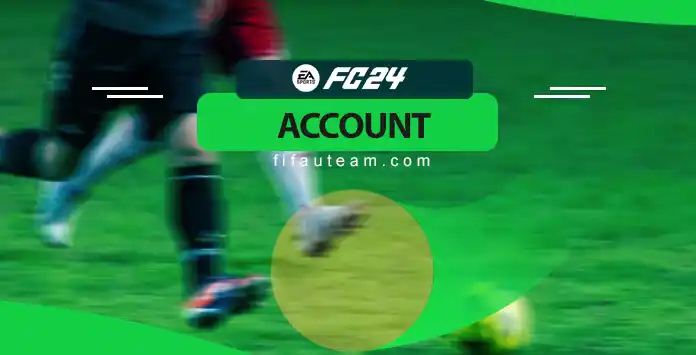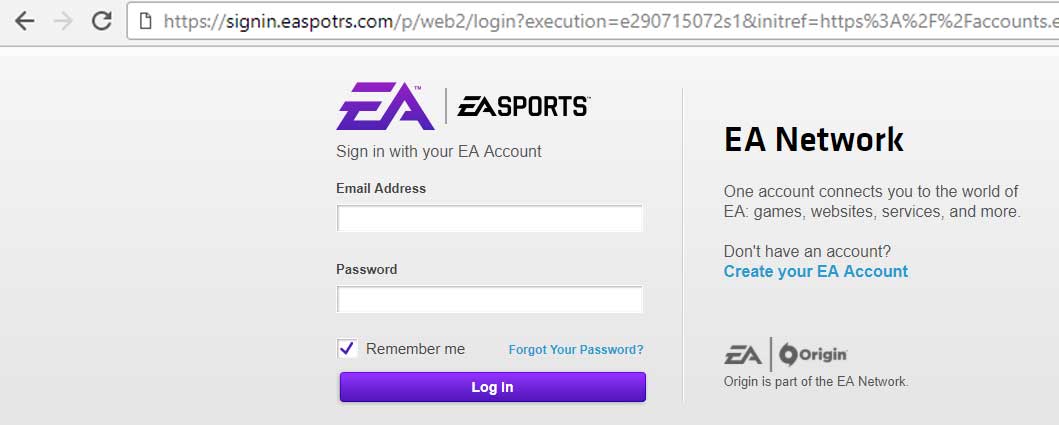If Football Club is as important to you as it is to us, you should stop and take 5 minutes to protect your FC 24 account. We explain in this article how you can keep your progress safe and avoid falling on some of the scams cheaters use to steal information.
How to Keep your FC 24 Account Safe
To help reduce your chance of being phished, follow these rules:
- Always double-check the sign-in URL starts with https://www.ea.com;
- Always make sure the URL does not redirect to another site;
- Never give out your information through the forums or your console;
- Never click links in emails asking for account information or claiming your account has been compromised.
EA will never ask you for your
How to Avoid Scammers
Many people are trying to scam Football Club players to steal their accounts. If you know the methods they use, you can easily avoid them.
Fake Emails and Copycat Websites
You receive an email that appears to be from EA concerning an Ultimate Team promotion. You click on the link in the email, go to what appears to be the Ultimate Team login page, and enter your account name and password. Two days later, you discover that all your players have disappeared. Sound familiar? Hopefully not, as the person above was just phished. Phishing is a way of tricking someone into giving up valuable information (like your account name and password) by landing on a fake website and entering your account details. As the majority of
While the site below may look identical to the official one, it isn’t. How to spot the difference? The URL. The official EA website uses the following URL: https://www.ea.com/. Any other similar-looking URL is not official and should not be clicked on.
Redirecting
Redirecting is a technique where a scammer embeds something in a link that takes you to the real site to begin with but then moves you to a fake page that looks identical. There are many examples of this, but one simple thing to look out for in your address bar would be: https://www.ea.com/redirect?url=https://fakesite.com
Note the ‘redirect?’ part of the URL. This means you won’t go to the official EA website. EA will never redirect you from https://www.ea.com/ to another site.
Scare Tactics
Another common tactic involves scaring you into thinking your account has been compromised when it hasn’t. You may receive a message like: ‘Your account has been temporarily suspended due to suspicious activity. Please log in here to see more information.’ This is another attempt to get you to give up your username and password. As always, the result directs you to a fake site, not to https://www.easports.com/fifa.
EA will never send you emails claiming your account has been compromised. EA will never contact you via ANY means asking for this information.
Direct Contacts
If you ever receive a private message in forums or your console’s online messaging system, you should know it’s fake. Scammers will use legitimate names, such as ‘EA Admin’ or ‘EASFC Developer.’ Again, EA will never ask you for your account info and will never contact you through your console’s messaging system for any reason. Report the message to the forum moderators or use the built-in report tool.
Fake Web App
Shared Squad links are being used to try to phish information. Remember: you don’t need to be logged into your EA account to view a Shared Squad. Anyone can view them, and like every other official link, they always start with https://www.ea.com. If you’re trying to view a Shared Squad and you are being redirected to a sign page, don’t proceed any further.
Additional Security Steps
Extra to the steps listed above, here are some additional precautions you can take to ensure your information is protected.
Preview Links
Before you click on a link, preview where it is taking you by hovering over it with your mouse cursor. Usually, the link location will be displayed at the bottom of your browser window.
Auto-Fill Passwords
Set your browser to remember your password for EA sites. This way, it will auto-fill the login form every time you visit the site. If you unknowingly go to a phishing site, the username and password will not be filled in, so you will know it’s a fake. Be sure only to do this on your home computer.
Create Strong Passwords
While not directly related to phishing, updating and maintaining your passwords is an important part of online security. Use the following suggestions to help develop a password that is harder to guess: use different passwords for your EA account, console login, and email; change your passwords often; do not use any information in your password that could easily be obtained; delete any emails that contain password information.
Avoid Public Computers
If you log in from a public computer, such as at a school or a coffee shop, double-check that the browser isn’t saving your login information. Be sure to delete the browser cache after you logout as well.
Use Browser Tools
Many major browsers have built-in phishing filters. Ensure that they are enabled. You can also check a website’s security by using this Google diagnostic: https://www.google.com/safebrowsing/diagnostic?site=easports.com.
Turn On Login Verification
EA Login Verification helps keep your FC 24 account safe by adding a second layer of protection. When enabled, EA sends you a code to make sure it’s you trying to log in to your EA Account from a new device.
Double-check your Emails
If you receive a phishing email message, don’t panic. Your FC 24 account has not been compromised. The only information is your email address, which is easy to find. Scammers duplicate the images and text from an official EA email like they copy websites. If you receive a suspicious-looking email, check who the sender is and where the links in the email are taking you. Some things to look out for with phishing emails:
– Names are easy to obtain, and phishers will almost always use these in emails.
– Other web links or elements in the email will take you to the actual site, but the ‘click here or ‘login’ link will always be to a fake site.
– When clicking on web links in emails, be sure it directs you to the same place they advertise.
– The only time EA will contact you through email about your account is if you have forgotten your password and you make a request to have it changed.


